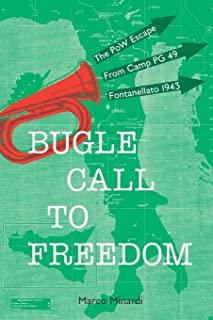
It was midday on September 9 1943, the day following the announcement of Italy's surrender to the Allies. At PG 49, a prison camp at Fontanellato, in the Po valley, a bugle sounded three short blasts, the signal for the biggest mass escape by Allied PoWs in Italy during the Second World War.
In camps elsewhere in the country there was confusion. Many prisoners of war, obeying orders from London, stayed put, only to be swept up by the occupying German army and sent to Germany, long before Allied forces could reach them.
At PG 49, however, the Senior British Officer and the sympathetic Italian commandant came to an agreement. The wire was cut and 600 PoWs marched out of the camp into the countryside, in the nick of time before the Germans arrived.
The prisoners were free but facing an uncertain future. Should they go north to neutral Switzerland or walk hundreds of miles south to Allied lines? Either way, they would rely on the bravery of peasants in the plains and mountains to hide them from the Germans and Italian Fascists.
Drawing on both PoW memoirs and civilian eyewitness accounts, Italian historian Marco Minardi tells the compelling story of the escape and its aftermath. In this translation, published by the Monte San Martino Trust, the huge and, in some cases, tragic repercussions for the local community it become abundantly clear.
The Monte San Martino Trust is a charity founded by former Allied PoWs in Italy to repay the kindness of the contadini. It arranges scholarships for young Italians to study English in the U.K.
member goods
listens & views

STRING QUARTETS NOS. 2 & ...
by SHOSTAKOVICH / TSINTSADZE / GEORGIAN STATE STR QRT
COMPACT DISC$19.25






